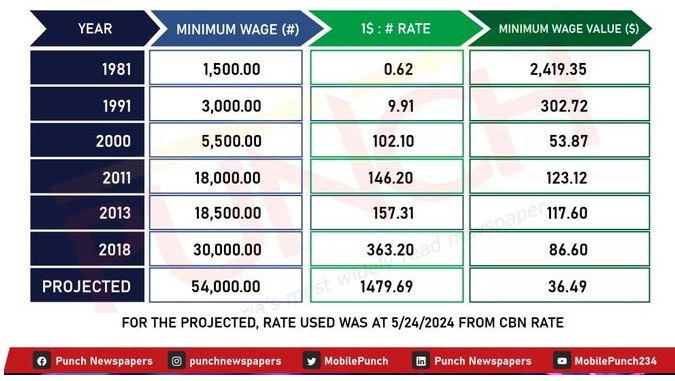
As of January 1, 1981, the federal minimum wage in the United States was $3.35 per hour. In other words, the monthly wage was $536 using the typical 40 hours per week. In Nigeria then, using the 1981 exchange rate since the Naira was stronger than the US dollar, it was $2,491.35 (see Punch data below). Say this way, the minimum wage in Nigeria in 1981 was $2,491.35!
This is the singular reason why most of your professors who studied abroad in the late 1970s and early 1980s returned back to Nigeria; Nigeria paid better and there was no reason for wasting time in the United States.
You could fly from Lagos to watch Liverpool in the UK, and right at Heathrow airport coming back, you could decide to visit New York for the Yankees. With the Nigerian passport, you could walk to the counter and they would put a US visa on that passport. Just like that, it was a journey to New York. The Nigerian passport was powerful.
Register for Tekedia Mini-MBA edition 19 (Feb 9 – May 2, 2026): big discounts for early bird.
Tekedia AI in Business Masterclass opens registrations.
Join Tekedia Capital Syndicate and co-invest in great global startups.
Register for Tekedia AI Lab: From Technical Design to Deployment (next edition begins Jan 24 2026).
Good People, that monthly $2,491.35 is now $36.49 (constant currency, not adjusted for inflation, etc on the US dollars). If you adjust for what has happened to the US dollars over this time, it may be worth less than $7 per month, effectively!
Nigeria needs an x-factor because we’re fading, and one way is to create CAPITAL so that growth can come.
Comment on Feed
We still have an oil boom. lol. Dont’s we? In the 1980s, we pumped about 400,000 bpd at about $36 per barrel. Today, we do close to 1.2m bpd at close to $80 per barrel. So, I do not think it is all about oil. Then, things used to be made in Nigeria. Today, we have financialized Nigeria as banking rose and manufacturing faded. In the 1980s, the known entrepreneurs at Kano, Aba, Abeokuta, etc made things. Today, they have apps for transferring money.
Nigeria’s problem is not oil, our problem is that post 1987 SAP, our economy was reconfigured with finance houses, etc and people found out that you could invest N1,000 and wait for 20% return without doing anything. With that, everyone joined the club: we moved funds into finance houses and banks, and starved the manufacturing sector.
The Untapped Wealth of Nations, and How Nigeria Remains A Nation of Money Instead of Capital
---
Connect via my
LinkedIn |
Facebook |
X |
TikTok |
Instagram |
YouTube


